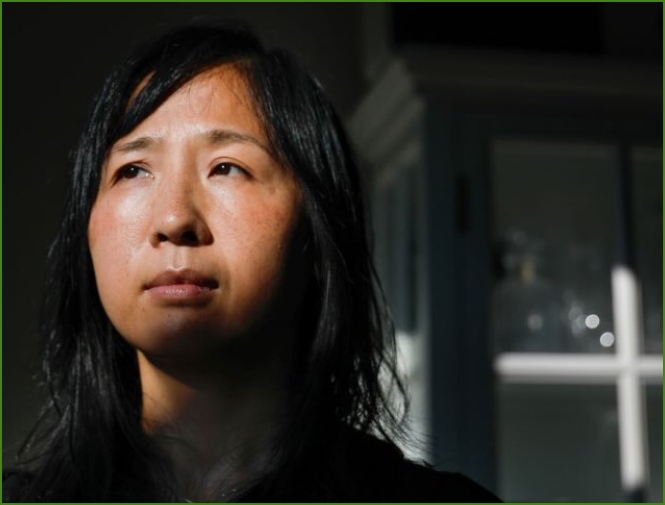What began as a routine asylum hearing for three young Venezuelan siblings turned into a moment of shock and heartbreak inside a downtown immigration courtroom. Judge Shuting Chen, known among Bay Area attorneys for her steady temperament and meticulous preparation, looked down at her computer and saw an email with the subject line: “Notice of Termination.”
She froze. Then the tears came.
According to reporting by the San Francisco Chronicle, Chen told those in the courtroom — the attorneys, the interpreter, the asylum-seekers waiting to plead for safety — that she had just been fired by the Department of Justice and could not finish the hearing. One of the attorneys, immigration lawyer Julie Reddy Wiltshire, also began to cry.
“I felt it was really disgraceful,” Wiltshire told the San Francisco Chronicle. “As an American, I was embarrassed. It made me question the rule of law in this country.”

The siblings, who had already waited years for an asylum hearing, are now back in legal limbo — with no clear timeline for when their case will be heard.
A Wave of Firings With No Explanations
Chen is one of 12 San Francisco immigration judges fired this year, leaving only nine judges to handle a docket that previously required 21. Nationally, the number is far larger: at least 90 immigration judges have been dismissed in 2025, a number legal experts say is unprecedented.
No reasons were given for Chen’s firing, nor for the dozens of others. The Trump administration has posted new job announcements calling the openings “deportation judges,” a shift in language that immigration attorneys say reflects a political agenda, not a legal one.
“I’m concerned they’re trying to dismantle the San Francisco immigration court one judge at a time,” Chen said.
She was appointed in 2022 under President Biden. Among the four other San Francisco judges fired the same day, two were originally appointed under Trump.
A System Buckling Under Pressure
The impact is already profound. The San Francisco court — historically among the most backlogged in the nation — was scheduling hearings into 2029 even before the firings. Now, Chen’s roughly 25,000 cases and those of other dismissed judges will be reassigned to the remaining nine.
“It’s frankly inhumane,” Chen said. “No one can deliver due process at that pace.”
The national backlog of immigration cases has soared to 3.4 million, the highest in U.S. history.
Advocates See a Political Purge
Immigration lawyers say the pattern is unmistakable: many fired judges had reputations for granting asylum at higher rates than the national average, though rates varied widely. A Chronicle analysis found that San Francisco’s recently dismissed judges were among those most likely to grant asylum.
“There is no evidence Biden forced judges toward amnesty,” Wiltshire said. “But there is plenty of evidence this administration wants to speed up deportations — even to countries migrants have never lived in.”
A DOJ spokesperson declined to explain the dismissals but accused the Biden administration of “forcing immigration courts to implement a de facto amnesty” — a claim not supported by court data.
A Personal Toll on Judges and Migrants
Chen, 42, came to the U.S. at age 8 after decades of anti-Chinese immigration laws had finally fallen. She is a Harvard Law graduate who spent years defending asylum-seekers and later served at the Ninth Circuit before becoming a judge.
“Being an immigration judge is trauma-filled,” she said. “But I never took the role for granted. The laws that gave me a chance in this country were the same laws I worked to apply fairly every day.”
Her voice broke as she reflected on the moment she was fired in front of a family pleading for refuge.
“I don’t just mourn the loss of a job,” she said. “I mourn the disintegration of a system.”
Now, with thousands of cases unassigned and hearings pushed to the end of the decade, Chen worries that America’s asylum system — already stretched thin — is beginning to crack in ways that will be hard to reverse.
“My colleagues will do everything they can,” she said. “But what’s being asked of them is impossible.”
